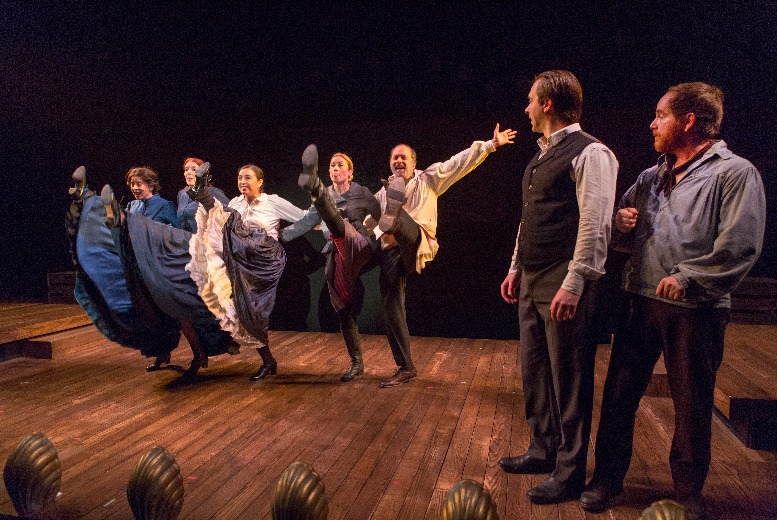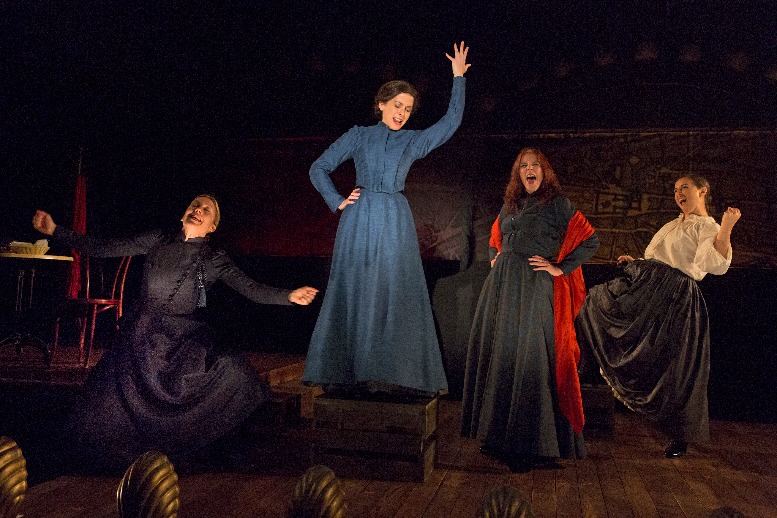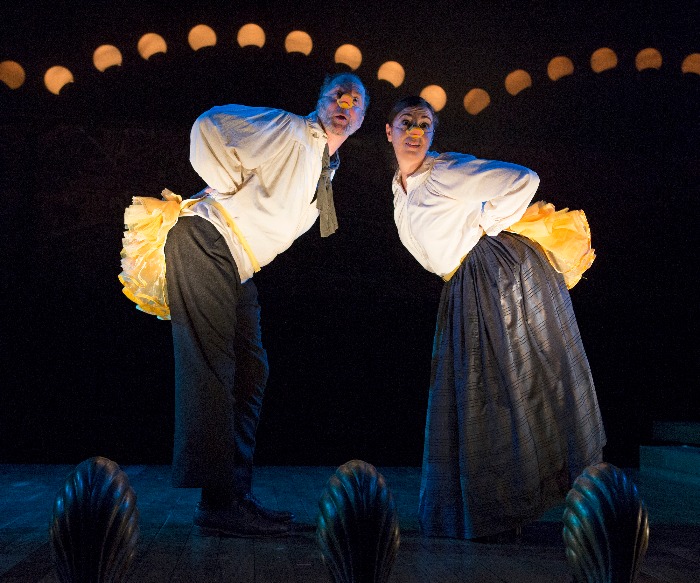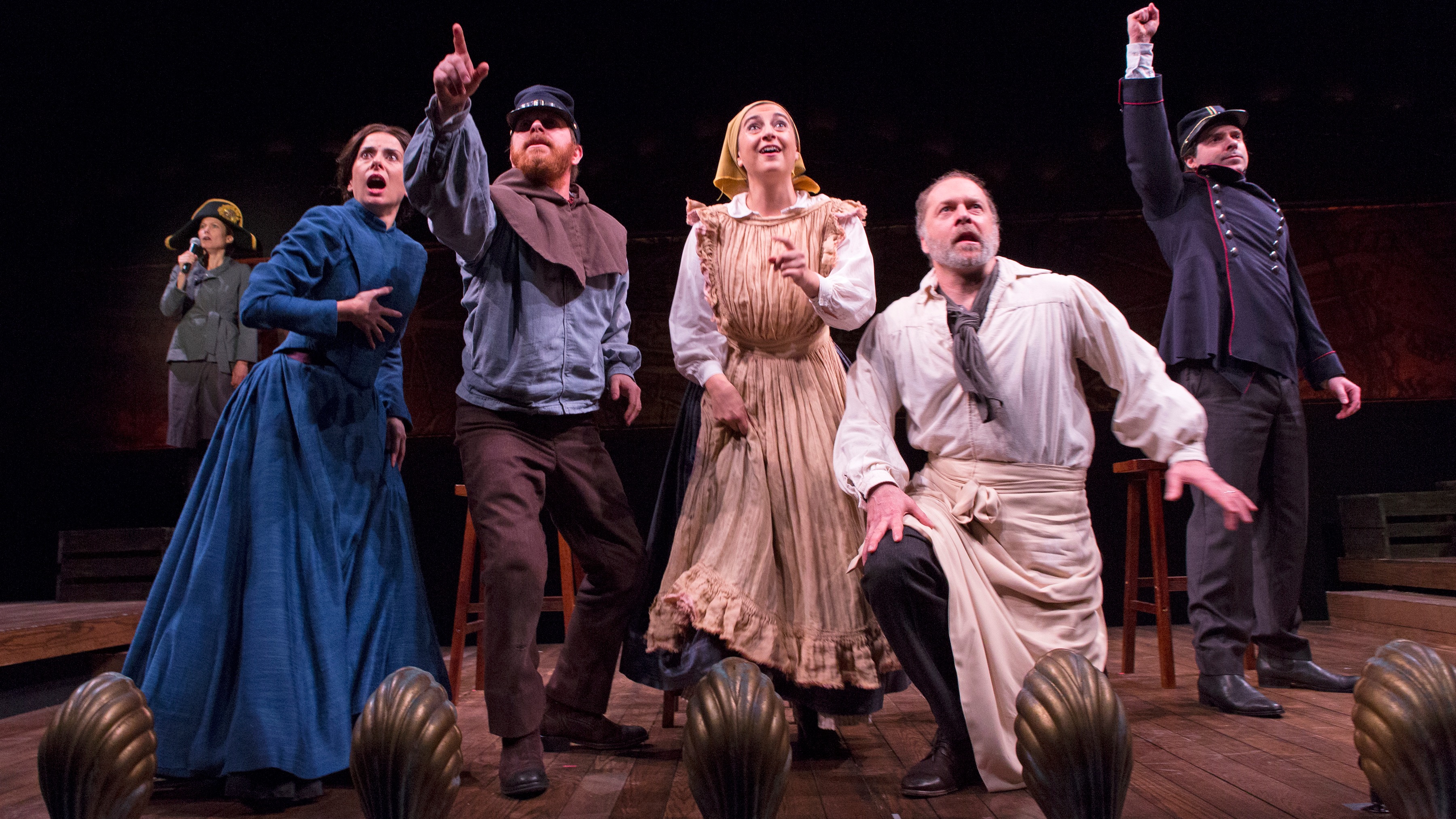Long before Seattle’s Black Lives Matter protesters took hold of several of the city’s streets and declared their own “Autonomous Zone,” the disgruntled citizens of 19th century Paris created a radical government known as the Paris Commune, a short-lived siege of France’s capital that came to be considered the first socialist revolution in Europe. From March 18th to May 28th 1871, “la canaille,” or the working class (though more accurately translated to “the scum”), governed Paris and its people, promoting freedom of speech, secular education, co-operative ownership of business, direct democracy and equality for women as their tenets.
This socialist experiment, albeit unsuccessful, planted the seeds for cultural upheavals from the Russian Revolution to the 1989 protests in China’s Tiananmen Square, inspiring generations of revolutionaries to stand up for equality in the face of oppressive rule. Perhaps this is why the Civilians, a theater company dedicated to exploring the intersections of theater and society, saw this rich moment in history as ripe for exploration on the stage. While they had previously focused on contemporary issues for their ventures into journalistic theater, Steve Cosson, the Civilians Artistic Director, and Michael Friedman, a founding Associate Artist, saw the opportunity to reimagine history and recreate the explosive events of 1871 onstage using archival documents and original songs from the time period.

Paris Commune, while recalling events from nearly 150 years ago, turned out to be more prescient than even its creators imagined: as Cosson noted in the program for the show’s world premiere as part of the 2012 BAM Next Wave Festival, “Michael and I would often remark how extraordinary it is that, for example, a nameless citizen stood up at a meeting in 1871 and shared a piece of her mind, and because that thought was recorded, we can bring her back to life through the artifice of theater. That woman was a ‘nobody’ in history, but because she was part of the public discourse just for a moment, her idea continues to shape the fabric of our present. History isn’t simply a record of the past; it’s the ongoing presence and influence of past events and ideas.” With Paris Commune, Cosson and Friedman furthered their mission, as Ben Brantley articulated in his review of the production, of giving “voice to the voiceless and form to the undocumented.”
Now, for the first time, the public has the opportunity to revisit Paris Commune with the release of its newly-recorded cast album. The recording is part of the second installment of the Michael Friedman Collection, a legacy project of Ghostlight Records and the Civilians that emerged after Friedman’s untimely death in 2017. The collection will premiere nine previously unrecorded musicals of the prolific composer and lyricist. “Now his life’s work will continue to live on,” said Ghostlight Records founder and frequent Friedman collaborator Kurt Deutsch in a statement, “and inspire generations of musical theater lovers to come.”

Unlike the other albums in the collection, the songs of Paris Commune were studied, selected, and ultimately translated by Friedman, not written by the composer himself. What the listeners lose in originality, however, they gain in Friedman’s revelatory musical archaeology. Friedman, who studied American history and classical music at Harvard before becoming a full-time theater maker, chose archival music that not only represented the Commune, but oftentimes emerged from it. The foremost example is “La Canaille”—lyrics by Alexis Bouvier and music by Joseph Darcier—a song that inspired Friedman’s selections through the rest of the show’s development. Cosson recalls that Friedman was roused by an article he read about La Bordas, a cabaret singer and subsequent character in Paris Commune, who sang “La Canaille” to lift the commune’s spirits.
Friedman chose archival music that not only represented the Commune, but oftentimes emerged from it.
“La Canaille” is only one of the historical songs in the show that were sung within the Commune to denounce tyranny and provide fleeting moments of joy amidst the harsh realities intrinsic in maintaining an insurgent socialist government. The primary battle cries were written by Jean-Baptiste Clément and Eugène Pottier, who themselves were elected council members of the Commune. “Le Temps des Cerises” (The Cherries of Spring) by Clément became symbolic of the revolution, while “L’Internationale”, written by Pottier just weeks after the Commune’s devastating demise, has become the anthem of the international workers movement. Remarkably, although the overthrow of the Commune at the hands of the French Army led to deaths numbering in the tens of thousands, Clément survived and went on to write about the public executions of the Communards in “La Semaine Sanglante” (The Bloody Week) and “Le Capitain” (The Captain).

Of course, not every musical moment in the show is so heavy. “Les Canards Tyroliens” (The Yodeling Ducks)—lyrics by Cognard Frères and music by Thérésa—comes from the rich tradition of café concerts, open air performances that took place during the Second Empire period before the Commune. “Ah, comme j’aime les militaires!” (Oh, I Love Men in Uniform)—lyrics by Henri Meilhac and Ludovic Halévy, music by Jacques Offenbach—is drawn from a completely different genre (the outrageous world of opéra bouffe). Throughout Paris Commune an opera singer appears on occasion, musically representing the ruling class and the power of the State.
The soundtrack of the revolution was varied, and thanks to Michael Friedman, people will be hearing the thoughts and melodies of the Commune’s revolutionaries for years to come.
To listen to the world premiere cast recording of “Paris Commune,” click here.
Author
-

Caroline Meredith is the Editorial and Social Media Intern for The Civilians and a student at NYU's Gallatin School of Individualized Study (BA '22), where she is concentrating on arts administration and writing. She previously served as the editorial intern for American Theatre magazine and their publisher, Theatre Communications Group. As a general management intern, she assisted Martian Entertainment with "The Play That Goes Wrong" Off-Broadway and the 2019 Broadway transfer of "The Lightning Thief." At NYU, she was a producer of the 2020 Gallatin Arts Festival and a student editor and frequent contributor to Confluence, NYU Gallatin's online platform for student writing, art, and research.
View all posts









